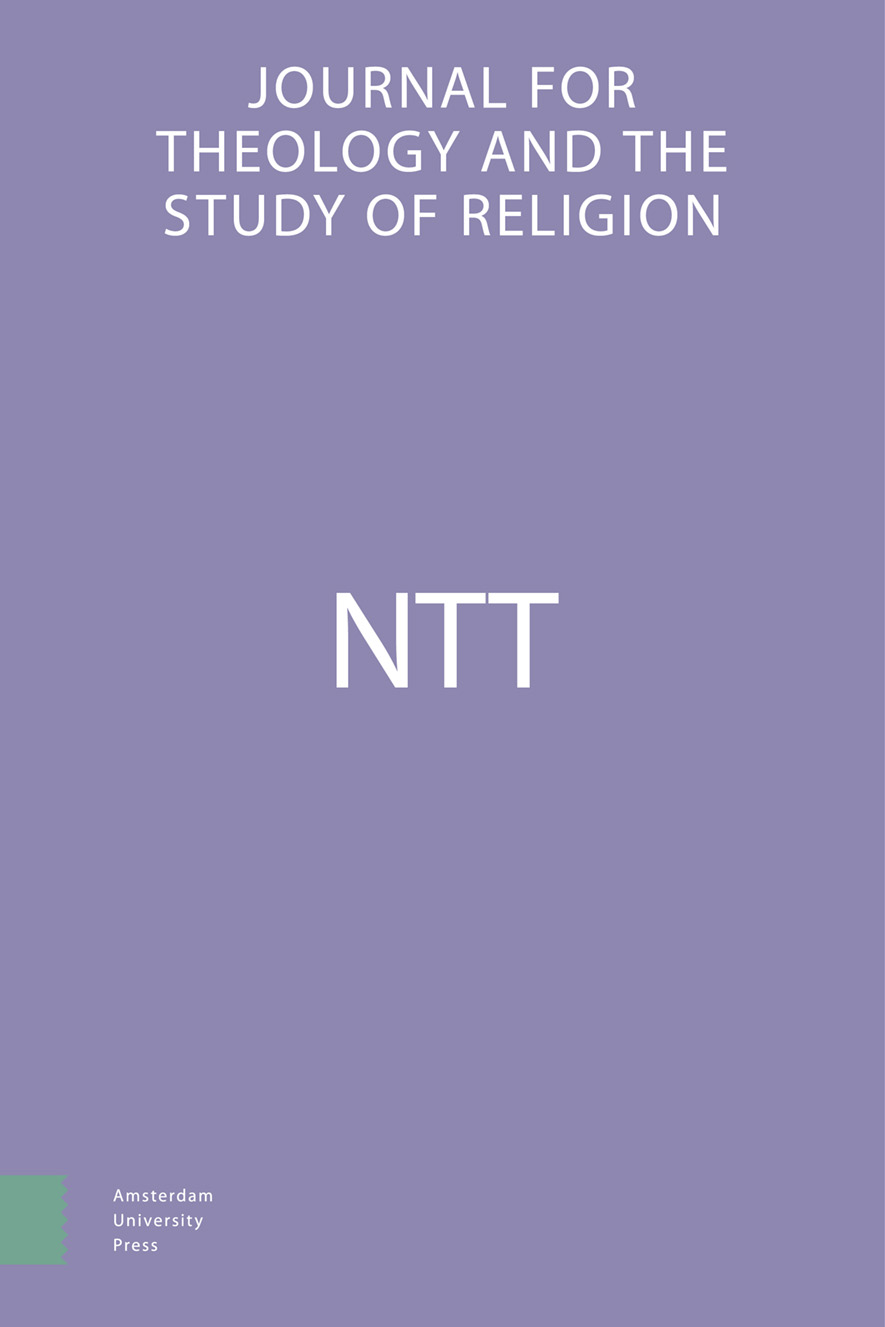- Home
- Publications
- NTT Journal for Theology and the Study of Religion
- Previous Issues
- Volume 49, Issue 4, 1995
NTT Journal for Theology and the Study of Religion - Volume 49, Issue 4, 1995
Volume 49, Issue 4, 1995
-
-
Tekstlinguïstiek en het Bijbels-Hebreeuwse werkwoord: een kritische uiteenzetting
*Bewerkte versie van een voordracht gehouden voor het Oudtestamentisch Werkgezelschap op 12 januari 1995 te Brussel.
More LessAuthor: Jan JoostenAbstractA textlinguistic approach to the perennial problem of the Hebrew verb has recently been developed in various quarters. Scholars like A. Niccacci, M. Eskhult and R. Longacre have argued that the function of the verbal forms is not primarily to be described in terms of tense or aspect, but that the verbal forms need to be viewed as signals structuring the text in which they occur. Although this new approach is certainly helpful it also presents several problems. In the present article it is argued that textlinguistic functions are not inherent in the different verbal forms; rather, such functions are contextual realisations of the temporal-aspectual value of the forms.
-
-
-
Midrasj in, en, op de bijbel? Kritische kanttekeningen bij het onkritische gebruik van een term
More LessAuthor: Lieve TeugelsAbstractAlthough the attention paid to rabbinic literature in recent biblical scholarship is laudable, some criticism on the way the term ‘midrash’ is used, is required. It tends to become a fashionable word that has lost all specific meaning. The main reason for this is the scarce experience of biblical scholars with detailed study of rabbinic texts. In this paper, two solutions for this problem are offered. Firstly, exegetes should depart from the factual study of rabbinic midrash, and only on the basis of the characteristics found there, turn to the biblical text; further, they should realize that ‘midrash’ is a very specific form of rabbinic dealing with Scripture, and therefore a 'stretched' use of the term is more often than not inaccurate. To illustrate this subject, some studies in the field of biblical exegesis have been examined.
-
-
-
Gelovend denken, denkend geloven of gescheiden zaken? Overzicht van onderzoek over natuurwetenschap en geloof in Nederland, 1980-1994
More LessAuthor: Willem B. DreesAbstractThis article offers an overview of Dutch publications on the relationships between the natural sciences and religion as published between 1980 and 1994. Three main strategies are distinguished: approaches which reinterpret the sciences with respect to content and status in the context of religious presuppositions (faithful thinking), approached which reinterpret faith in the context of knowledge and views of knowledge as shared by persons of various religious persuasions (thoughtful faith), and arguments that religion and science should be considered as separate enterprises. Liberal and orthodox examples of these strategies are considered. The author opts for a liberal version of the ‘thoughtful faith’ strategy.
-
Volumes & issues
-
Volume 79 (2025)
-
Volume 78 (2024)
-
Volume 77 (2023)
-
Volume 76 (2022)
-
Volume 75 (2021)
-
Volume 74 (2020)
-
Volume 73 (2019)
-
Volume 72 (2018)
-
Volume 71 (2017)
-
Volume 70 (2016)
-
Volume 69 (2015)
-
Volume 68 (2014)
-
Volume 67 (2013)
-
Volume 66 (2012)
-
Volume 65 (2011)
-
Volume 64 (2010)
-
Volume 63 (2009)
-
Volume 62 (2008)
-
Volume 61 (2007)
-
Volume 60 (2006)
-
Volume 59 (2005)
-
Volume 58 (2004)
-
Volume 57 (2003)
-
Volume 56 (2002)
-
Volume 55 (2001)
-
Volume 54 (2000)
-
Volume 53 (1999)
-
Volume 52 (1998)
-
Volume 51 (1997)
-
Volume 50 (1996)
-
Volume 49 (1995)
-
Volume 48 (1994)
-
Volume 47 (1993)
-
Volume 46 (1992)
-
Volume 45 (1991)
-
Volume 44 (1990)
-
Volume 43 (1989)
-
Volume 42 (1988)
-
Volume 41 (1987)
-
Volume 40 (1986)
-
Volume 39 (1985)
-
Volume 38 (1984)
-
Volume 37 (1983)
-
Volume 36 (1982)
-
Volume 35 (1981)
-
Volume 34 (1980)
Most Read This Month

Most Cited Most Cited RSS feed
-
-
How to read Philo
Author: D. T. Runia
-
- More Less

